Google Keyword Planner Review: Is It Still a Good Keyword Research Tool?
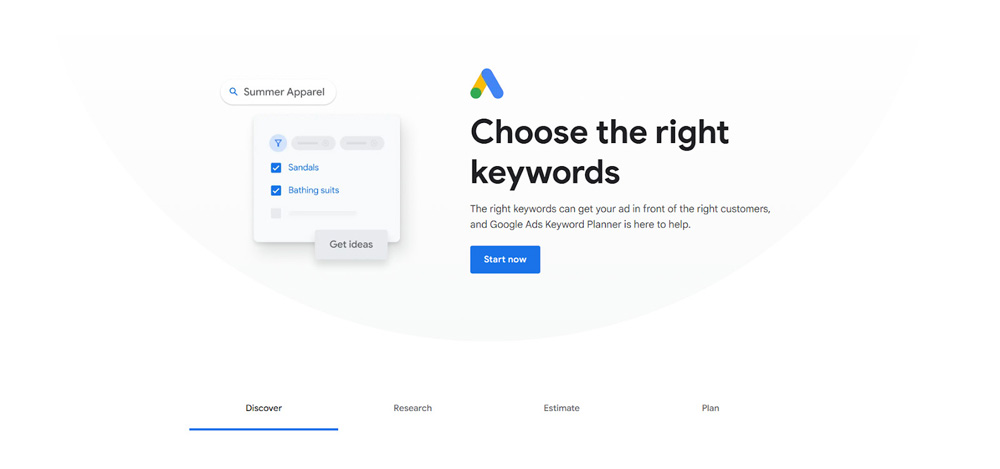

Google Keyword Planner (GKP) has been the entry-level tool for keyword research since it replaced the old Keyword Tool in 2013. It sits inside the Google Ads interface, comes with zero price tag, and delivers search-volume data directly from Google’s own servers. For many Kiwi marketers that sounds perfect, yet the tool was designed for pay-per-click (PPC) specialists much more than for search-engine optimisation (SEO) work.
In this review we put Google Keyword Planner through an SEO lens, explore the steps required to access full data in New Zealand, weigh its strengths and limitations, compare it with popular alternatives, and finish with a practical workflow you can adopt if you choose to keep GKP in your arsenal.
What Google Keyword Planner Does: Quick Overview
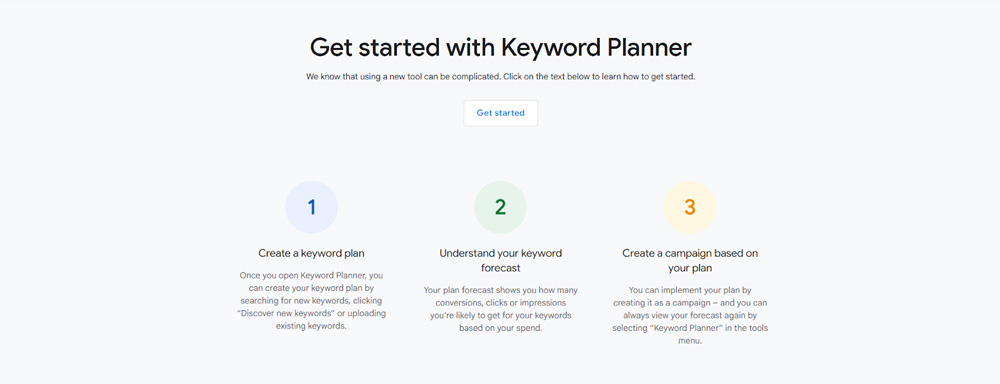
Google Keyword Planner is one of the planning utilities inside Google Ads. Its purpose is to help advertisers:
- Discover new keyword ideas for campaigns
- Gauge average monthly search volumes (global or country-level)
- View suggested bids for top ad slots
- Forecast likely impressions and clicks at different bid levels
The interface offers two primary modes:
- Discover new keywords – enter a seed word, multiple seeds, or a website URL, and GKP returns hundreds of ideas.
- Get search-volume forecasts – paste a list of terms and obtain historical volumes plus future projections.
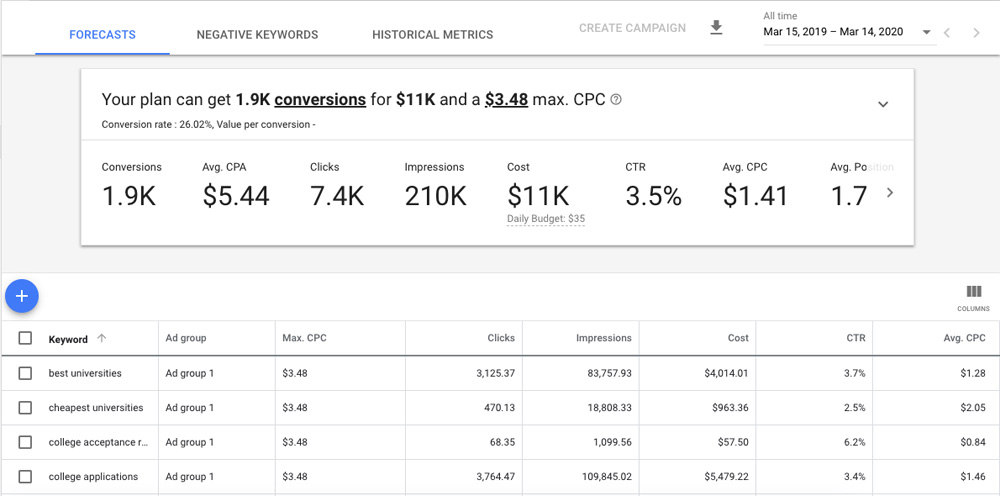
Although aimed at PPC, the volume data and idea list tempt SEOs into using it for early-stage research.
Key Features of GKP at a Glance
| Feature | What You Get | SEO Value (High / Medium / Low) |
| Exact monthly volumes | Shows average searches over 12 months (exact only for paying accounts) | Medium |
| Historical volumes | Data back to 2014 | Medium |
| Mobile vs desktop split | Separate volumes for mobile | Medium |
| Keyword ideas | Hundreds of phrases related to seed | High |
| Bid suggestions & competition | PPC metrics only | Low |
| Forecast panel | Impressions / clicks at chosen bid | Low |
| Location & language filters | Region-specific data | High |
Strengths of Keyword Planner for SEO Work
1. Direct Google Data
Volumes come straight from Google, avoiding third-party extrapolation. When exact numbers are available, confidence is high that 2,400 searches truly means 2,400 monthly NZ searches.
2. Geographic Accuracy
Choose New Zealand or even a specific city such as Auckland. This matters for local SEO for Auckland Businesses, where global averages can mislead you.
3. Historical Seasonality
Winery owners in Hawke’s Bay can check if “cellar door tastings” spikes each summer by sliding the date range back several years.
4. Mobile Split
With mobile accounting for over 65% of NZ organic traffic, knowing a term’s mobile volume helps decide page speed priorities or AMP investment.
Pain Points and Limitations
1. Pay-to-Play for Exact Volumes
No ad spend means GKP downgrades volumes to ranges such as 1K to 10K. That bracket is almost useless for prioritisation because 1,100 and 9,900 searches live in the same bin.
2. No Keyword Difficulty Metric
PPC “Competition” reflects advertiser bids, not organic ranking difficulty. A keyword can show “Low competition” yet be dominated by high-authority news sites that are tough to outrank.
3. No SERP Snapshot
Modern SEO requires analysing who already ranks, which rich snippets appear, and how many ads push organic results down. GKP reveals none of this.
4. Unfriendly Export Format
The CSV download includes PPC columns you must delete before importing into an SEO sheet or tool. Extra cleaning wastes time.
Google Keyword Planner vs Popular Alternatives
KWFinder
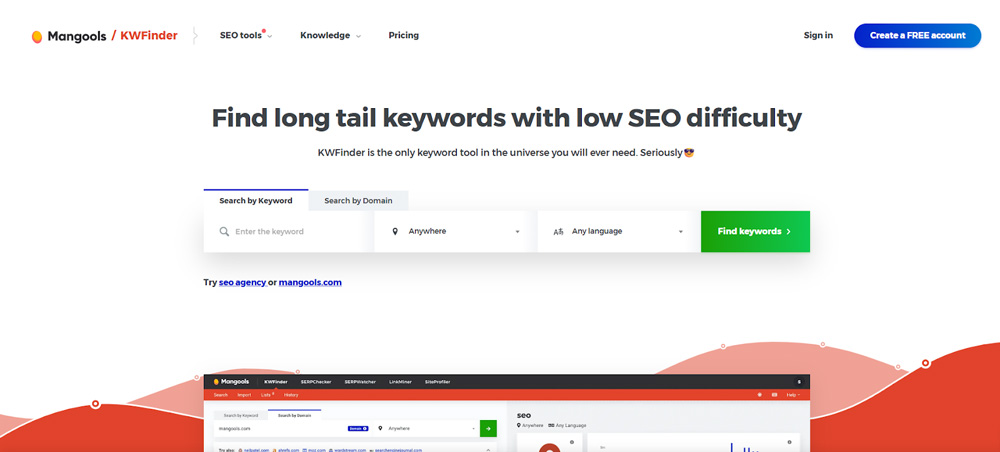
- Pros – Exact volumes without ad spend, built-in keyword difficulty, SERP overview, simple filters (“Questions”, “Autocomplete”).
- Cons – Paid subscription after limited free searches.
Semrush & Ahrefs
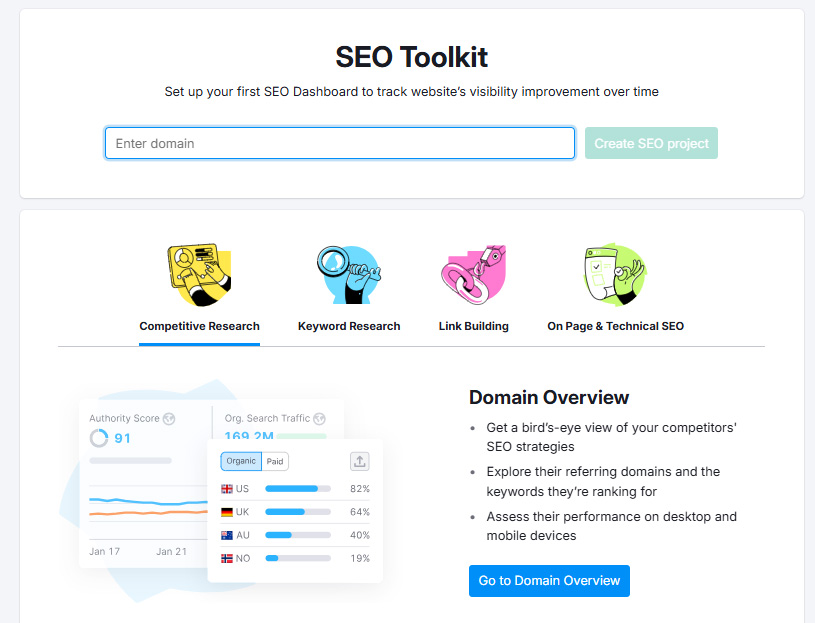
- Pros – Huge databases, robust difficulty scores, competitor keyword gaps, backlink info, daily position tracking.
- Cons – Higher monthly fees, steeper learning curve.
AnswerThePublic (Free)
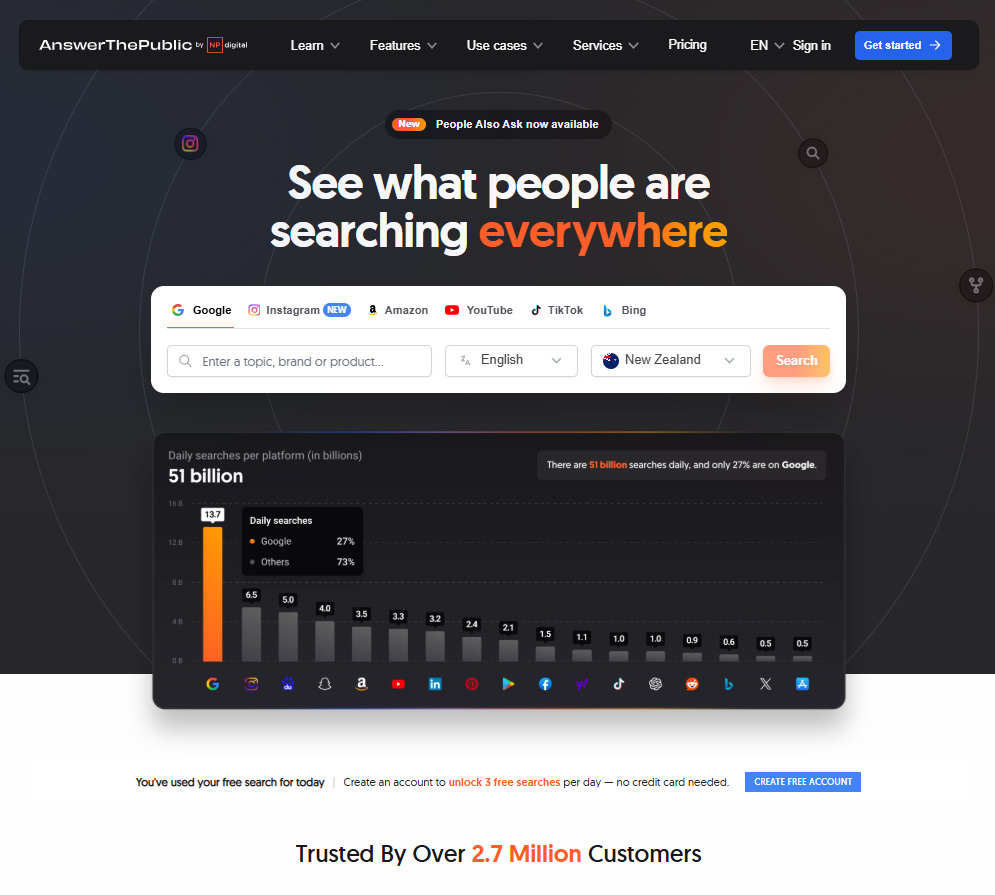
- Pros – Visual wheels of question keywords, useful for voice-search content.
- Cons – No volume or difficulty metrics; needs pairing with another tool.
A side-by-side table or a short comparison graphic will help readers grasp these contrasts at a glance.
When Does Keyword Planner Make Sense?
- Early Brainstorming – Rapidly build an idea list before deeper analysis.
- PPC & SEO Crossover – If your brand already spends on Google Ads, you unlock exact volumes at no extra cost.
- Quick NZ Volume Check – Verify that a phrase has at least minimal local interest before committing to content.
Outside those scenarios, a dedicated SEO platform proves more efficient for effective keyword research.
Best-Practice Workflow (If You Decide to Use GKP)
- Enter one seed keyword at a time to keep ideas tight.
- Filter location to New Zealand, set language to English.
- Download the CSV and delete PPC-only columns.
- Add keyword difficulty via a free MozBar check or paste into a KWFinder free trial.
- Group phrases by search intent: informational, transactional, navigational, commercial.
- Open the SERP manually for top candidates to confirm page type and snippet mix.
- Prioritise using a simple matrix: Volume vs Difficulty vs Relevance.
- Build topic clusters around main terms, then draft content to answer intent completely.
A checklist image placed beside this list can encourage readers to bookmark the workflow.
Verdict: Good, Bad, or Both?
Good
- Free if you already advertise
- Direct Google data
- Solid for local volume validation
Bad
- Requires ongoing spend for full numbers
- Missing organic difficulty and SERP context
- Clunky exports and no competitor spying
Overall: Google Keyword Planner is fine as a starting pad, yet insufficient as a stand-alone SEO research solution. Pair it with at least one SEO-centric tool to fill the gaps, or move straight to an all-in-one platform once budget allows.
Frequently Asked Questions
Is Google Keyword Planner completely free?
Access is free, but exact search volumes only unlock for accounts with active ad spend, usually around NZ$150 per month.
Can GKP show me keyword difficulty scores?
No, the “Competition” column reflects paid-advertising rivalry, not organic ranking difficulty.
Does Keyword Planner work for Bing searches?
No. Data comes from Google’s own search engine only.
How accurate are the volume numbers?
Exact numbers are reliable because they come from Google’s database. Ranges, however, are too broad for detailed planning.
Can I use Keyword Planner without creating ads?
You can access the interface, but Google tends to deactivate dormant accounts after 15 months of zero spend, which will again hide exact volumes.
Is Google Adwords Keyword Planner Still A Useful Keyword Tool?
Google Keyword Planner remains a handy, cost-effective resource for Kiwi businesses already active in Google Ads or those who need a quick pulse on local search demand. Its PPC heritage, lack of organic metrics, and paywall for precise data hold it back as a primary SEO tool. Treat it as a supplementary idea generator, then validate and expand your research with purpose-built SEO software.
Want a deeper, data-rich keyword list tailored to your industry? Request a discovery meeting with Kiwi Website Design, and our team will combine Google data with advanced SEO tools to uncover high-intent phrases that get you more leads.


Comments are closed.